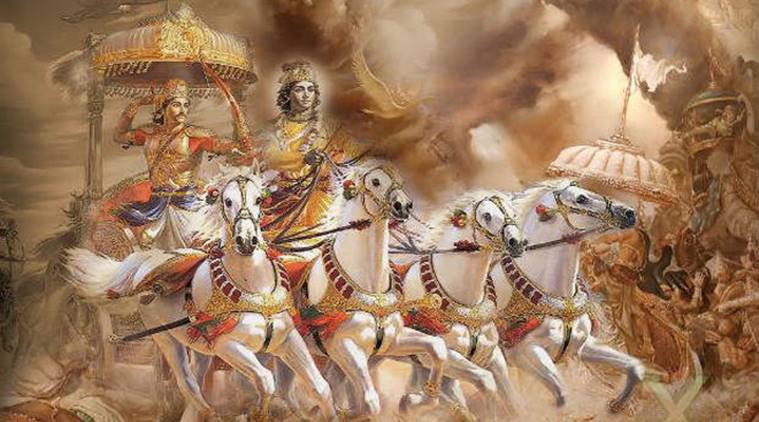
The other day, a friend called to say how depressed he was with the “shut down” and COVID-19. I said, “Read the Bhagwad Gita.” The reaction was predictable. He said, “Shut up. I was asking for some practical advice, not religious advice. I thought you would be different. You are behaving like stereotypical gurus who say step up your vibrations, become a celibate, worship the Cobra.” He continued: “I have had a surfeit of that kind of advice. When you are going to die, what you need are ventilators. I need to stay sane. I need to fight an extraordinary situation and you are saying, read the Gita. Man, this is unkind. I think you can’t help me!”
I said: “The problem with you is that you are one of those English-educated people — and believe me there are many — who have fallen into the trap set by Thomas Babington Macaulay who, in 1835, said, Indians taught through the medium of English would become, to quote him, ‘a class of persons, Indian in blood and colour, but English in taste, in opinions, in morals and intellect’.”
The Gita (like the Upanishads) is not a mere religious text in the conventional sense of the term. It is an in-depth study of the nature of consciousness and a practical guide to exploring its depths. Above all, it is an exhortation to shake off negativity and depression, the inner enemies, and fight the outer enemy depicted as the epitome of evil, degradation and destruction. Let’s examine its relevance today.
The scene is the great Kurukshetra war, which is about to begin. The great warrior king Arjuna, in his horse-drawn chariot, leads the Pandavas into battle. His charioteer is none other than Krishna Vasudeva, son of Devaki, the charismatic prince of the Yadava clan who the rishis declare as divinity in human form, an “avatar”. On the other side stands the Kaurava army with its formidable warriors including the great Bhishma, the patriarch of both the Pandavas and Kauravas.
Somewhere along the line, Arjuna loses his nerve and using the excuse of not wanting to hurt his relatives, goes into depression and refuses to fight. The first chapter of the Gita, therefore, is named Arjuna Vishada Yoga, the Yoga of Arjuna’s depression.
The rest of the 17 chapters deal with how Krishna, the expert psychologist, warrior, strategist and close friend of Arjuna, lifts him up step by step from the depression he has fallen into, convincing him that to fight evil is the bounden duty of the king, the ruler, and that he should tap into the powerhouse of energy that resides in his soul, a spark of the Supreme Self, the divine Brahman, and that there is nothing to fear. Arjuna picks up the bow, which he had almost discarded, and the Pandavas emerge victorious.
So why is it relevant today? We are passing through “vishada”, a time when many are depressed due to the unpredictable and unfamiliar danger called the COVID-19 pandemic and the unusual circumstances created by the lockdown, which is necessary to put a lid on the virus’ spreading tentacles.
The Gita has many lessons for us. There are practical lessons, like for instance in the fifth chapter, called the Yoga of Meditation, where the technique of meditation is taught. In the second chapter, there are numerous pointers on how to keep the mind tranquil in all circumstances how to be “sthitaprajna”. The chapter on Karma Yoga deals with the technique of working without self-centredness and free of tension. Every chapter has something to offer, to cultivate a positive frame of mind — in words of the Gita to “make your mind your friend”. Above all, the Gita brings home the Upanishadic statement that each one of us is a spark of the Supreme, the all-powerful Divine, and that one can manifest this vast energy if one learns to.
Consider the coronavirus as the enemy that stands before us and fight the battle to emerge victorious. Arise, awake and stop not till the goal is reached, said Swami Vivekananda, echoing the Upanishads. Give no place to depression and give a helping hand to the government and the great doctor-warriors, who have bravely and selflessly entered the battlefield. Hearken to the thunderous victory call of the Panchajanya conch that Krishna blew in the battle of Kurukshetra.
This article first appeared in the print edition on May 21, 2020 under the title ‘In the war against the virus’. The writer is founder, Satsang Foundation